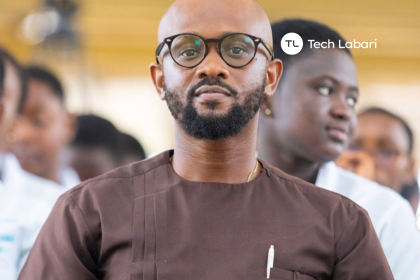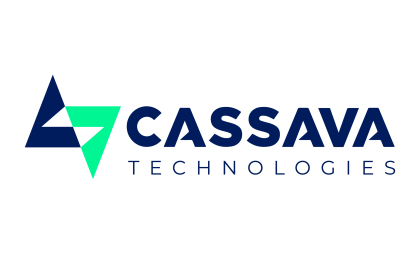On the latest episode of the Labari Media podcast, we spoke to Akua Sencherey, a Ghanaian-American product marketing leader at Andela, one of the world’s largest private marketplaces of skilled technical talent, reshaping how companies hire through its AI-powered platform.
Akua will be at the Tech in Ghana conference happening in November in Accra (Tech Labari is a media partner for the event).
Akua shared insightful details about Andela’s adaptive hiring model and how it is reshaping the global and African talent market. The discussion revealed how Andela’s unique approach is addressing common hiring challenges while fostering growth in Africa’s tech ecosystem.
The Concept of Adaptive Hiring
At the core of Andela’s approach is adaptive hiring, a flexible method that allows organizations to find the right talent based on skill, speed, and cost. According to Akua, the model hinges on five main pillars: it’s global, fast, agile, scalable, and optimized for cost. This ensures that companies can access top-tier tech talent from anywhere in the world, onboard swiftly, and maintain the agility to scale teams according to business demands.
By adopting an AI-powered product called the Andela Talent Cloud, Andela matches companies with the right technologists based on a data-driven decision engine. This engine factors in elements such as skill levels, experience, and time zone compatibility, significantly reducing hiring timelines and enhancing productivity.
Impact and Benefits of Adaptive Hiring
The data presented by Akua underscores the efficiency of adaptive hiring. For example, Andela’s clients have reported a 97% return on investment, with hiring times reduced by 66%, enabling companies to be 33% more productive. Akua highlighted that organizations usually spend months finding the right talent, but with Andela’s platform, the process is drastically accelerated without compromising on quality.
One of the most notable success stories comes from Mastercard Foundry, which sought to expand its engineering team. By using Andela’s adaptive model, Mastercard was able to find the right talent in just two to four weeks—a process that traditionally takes much longer—enabling them to continue their work in sectors like financial inclusion with increased efficiency.
Africa’s Hiring Landscape and Challenges
A key question during the conversation focused on how Andela navigates the diverse skill sets and challenges across various regions, particularly in Africa. Akua emphasized that adaptive hiring plays a crucial role in connecting African talent with global opportunities while retaining talent within the continent. She stressed that this approach is not about brain drain, but rather about offering localized opportunities that uplift both talent and businesses.
Akua pointed out that the Andela model allows companies to tap into Africa’s highly skilled talent pool without the constraints of geographical borders. One example is Andela’s collaboration with Mastercard to find engineers with specific financial regulatory knowledge from diverse African regions, demonstrating the model’s effectiveness in addressing local and global hiring challenges.
Andela’s collaboration with the Rwandan government on a technical leadership program is a prime example. The program has successfully trained over 500 engineers, contributing to the local tech ecosystem and preparing them for global opportunities.
Data-Driven Hiring and the Role of AI
As more African organizations seek to leverage AI and data analytics in hiring, Akua noted that tools like Andela’s product, which uses AI to assess talent, can help African companies maintain a global standard while hiring locally. Andela’s acquisition of Qualified.io, a developer assessment tool, allows companies to evaluate technical skills through coding challenges, video playbacks, and various assessments, ensuring that companies make informed hiring decisions based on evidence.
Akua also discussed the importance of fostering soft skills in the African workforce. She revealed that many companies value communication, critical thinking, and leadership over technical skills alone, and that Andela’s learning communities are designed to support both technical and professional development.
The Role of Governments and Educational Institutions
Governments in Africa, particularly those in tech-forward nations like Rwanda, are essential in building the infrastructure needed to support adaptive hiring and tech growth. Akua underscored the importance of governments ensuring access to stable electricity, internet, and physical technology, which are foundational to nurturing talent.
Partnerships between governments, universities, and tech companies can create ecosystems that support talent development. Andela’s collaboration with the Rwandan government on a technical leadership program is a prime example. The program has successfully trained over 500 engineers, contributing to the local tech ecosystem and preparing them for global opportunities.
The Future of Hiring in Africa
Looking ahead, Akua envisions adaptive hiring as a transformative model that will continue to unlock Africa’s potential in the global tech market. As emerging technologies like AI and machine learning become more prevalent, there will be increasing demand for tech talent equipped with future-ready skills.
Akua remains optimistic that with the right partnerships between businesses, governments, and educational institutions, Africa can close the skills gap and contribute significantly to the global tech workforce.
With a young and growing population, Africa is set to become a key player in the global tech industry. Adaptive hiring, supported by products like Andela’s Talent Cloud, is poised to drive this transformation by making it easier for companies to access skilled talent while empowering African technologists to thrive in a competitive global market.
Catch up on news and other tidbits on our WhatsApp Community Page, Twitter/X, and subscribe to our weekly newsletter to ensure you don’t miss out on any news.









